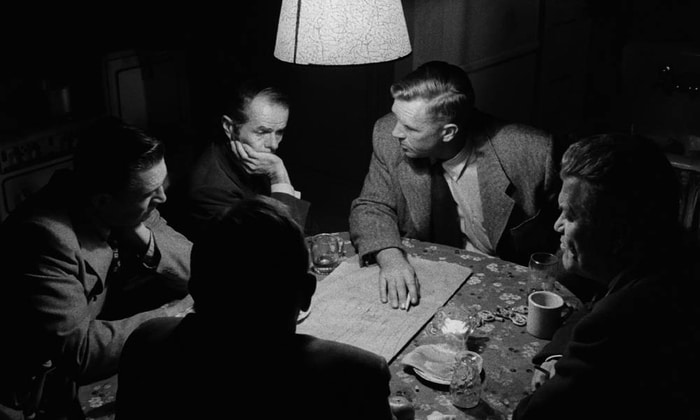Screenwriting can be a maze, especially when you’re first starting out. When learning the ropes, it can be easy to fall into traps which will make you look like an amateur writer; stopping your script from being taken seriously.
If you’re green, you may not know all the rules and tricks that professional readers and industry members will know to look out for. This is understandable but it’s also avoidable.
So to navigate this tricky road, we’ve put together 10 tips for screenwriters to show you what NOT to do if you want your script to look professional, and avoid being seen as an amateur.
What do you need to DO and what do you need to AVOID?
Table of Contents
- 1. Don’t Write Things We Can’t See or Hear
- 2. Sort Out Your Tenses
- 3. Don’t Get Carried Away With the Action
- 4. Stop Obsessing Over Formatting
- 5. Enough of the Wordy Dialogue
- 6. Don’t Write Without a Plan
- 7. Don’t Write Without a Point
- 8. Don’t Think You’re Too Good For Criticism
- 9. Respect the System
- 10. Don’t Send in Work That Isn’t Your Best
1. Don’t Write Things We Can’t See or Hear
A common sign of an amateur writer is one who includes things which the audience can’t see or hear. This might be, for example, particularly flowery language or acute detail about the inner workings of a character’s mind.
Detailing things which won’t actually appear on the screen may overwhelm the reader. Remember the role of the screenplay; to illustrate to the reader what is seen and heard on screen. Describing things that won’t actually be possible to see visually can be an indication that the writer is trying to impress.
Sure, one can illustrate a character’s internal conflict or feelings. However, these should always be somehow reflected by some sort of action; a way of cinematically manifesting something internal into something external. By writing description that won’t actually manifest on-screen the writer is potentially obscuring the actual action of the scene.

2. Sort Out Your Tenses
One of the simplest but biggest mistakes that amateur writers make is using the wrong types of tenses. Many fall into the trap of using passive tense: ‘We see X running away’, or sometimes even past tense: ‘X ran away’. However, these tenses have no place in a screenplay.
Instead, stick with the simple present voice: ‘X runs away’.
Screenwriting is an urgent, present medium. It’s transporting the reader/audience into the action directly, placing them in the middle of the unfolding story. This is why the present tense is so important. It puts the reader in the midst of the plot, rather than creating the distance that other tenses can.
3. Don’t Get Carried Away With the Action
Everyone loves extravagant action sequences in movies. So it’s easy to get carried away with them when you’re writing your script. However, no one wants to read paragraphs upon paragraphs about elaborate camera movements, the minutia of high-speed car chases or every blow of a fist fight.
Instead, keep the action simple, only include the necessary information that the reader needs to know and try and convey the emotional beats of the action, rather than every single movement.
The biggest focus should always be the plot. So when you’re writing your action sequences, ask yourself: does this develop my characters? Does it inform the plot? If it doesn’t, take it out. Too much detail can highlight the hand of amateur writers who don’t necessarily have a firm grip on what exactly their role is. Instead, they are seeking to articulate an acute blueprint for the film, rather than telling the story and allowing others to see a vision within it.
Sure, a detailed action scene can compel on the page. But don’t get lost in the vision of how EXACTLY this scene will play out. Instead, create broad emotional beats to suck the reader in and allow others to imprint their own vision on it.

4. Stop Obsessing Over Formatting
There’s no denying that formatting is an extremely important part of screenwriting. There is an industry-standard screenplay format that screenwriters are expected to follow. However, amateur writers can obsess over it a bit too much. And this, in turn, can affect the flow of their scripts.
For instance, Don’t worry too much about clogging up your script with unnecessary MORE’s and CONT’D’s for every line of dialogue. All this does is increase your script’s page count and clog the story’s flow, which will put off potential readers.
As long as your screenplay is in the correct script format, which is usually done for you when using programmes such as Final Draft or Celtx, then there’s no need to obsess over things which aren’t essential. So only use these other types of formatting if your script is not clear without them. Yes, you want to create a dynamic vision and conform to industry standards. But the most important element of your screenplay is the cogency of the story.

5. Enough of the Wordy Dialogue
Another common sign of an amateur writer is the use of dialogue which is too long and wordy. Although it’s tempting to create beautifully crafted monologues for all your characters, they can be frustrating to read.
No one wants to read through long speeches revealing your character’s every thought. Instead, keep your dialogue short and snappy. Try to teach us about your main character through the way they interact with others. Sometimes you can learn from someone based on the things they don’t say more than the things they do.
If the dialogue has no subtext, this feels undramatic. And this can seem an indication of an amateur writer, a writer who hasn’t yet grasped the power of what lies underneath dialogue and is still intoxicated with letting dialogue flow.
Starting to write dialogue can be exciting. It can feel empowering to let the dialogue spill out from your hands to the page, bringing your characters to life. However, this can lead to too much empty dialogue without purpose.
A good approach is to think of a real conversation; there are always interruptions and obstacles, and it’s rare you’ll get an endless amount of time to say everything on your mind. So remember this when writing dialogue for your own script and resist the temptation to let the words just spill out onto the page. Dialogue is an important weapon to be yielded carefully and thoughtfully.
6. Don’t Write Without a Plan
There’s no set amount of planning you should do before you begin to write your screenplay. Some screenwriters advocate for mapping out every scene on post-it notes, so you know exactly where your plot is heading. Others go for a looser approach; deciding on a beginning, middle and end and then figuring out the rest as they go. Whichever way you choose, it’s good to have a general idea of where your story is heading before you start.
Writing without any kind of plan is dangerous. It makes it easy for your story to lack direction and your characters to feel inconsistent. This is a sure sign of amateur writers. So when you have an idea that you think is great, take a moment to plan it out – and then get to the writing. A clear structure is an indication of a screenwriter in confident charge of their craft.

7. Don’t Write Without a Point
Whenever you’re writing a script, one of the most important things to consider is why you’re writing it in the first place. What’s your point?
This is one mistake that amateur writers commonly make. They write without knowing what their script is truly about. They can list the characters in their story, where they live, what happens to them and the general direction of the plot. But upon the question of “what is the story actually about?”, they may fall blank.
So find a thematic purpose for your work; a repeated idea or motif embedded throughout your script which gives it meaning. This will give the audience a reason to care and raise your work from amateur to professional. What is the purpose of your script that differentiates it from other scripts? Those reading your script will likely have read similar types of stories or certain genres over and over again. So what do you have to say that no one else can?
8. Don’t Think You’re Too Good For Criticism
You’re never too good for criticism, even if it’s from someone who knows nothing about screenwriting. Even if you think you’ve just written the next GoodFellas or Pulp Fiction, if someone provides you with genuine criticism of your work, listen to it, and use it to improve your script.
Do you think the best screenwriters got to where they were by believing their writing was perfect and ignoring people’s feedback? Certainly not. Try your best to get as much feedback on your scripts as possible, whether it’s from friends and family, agents, or script coverage services such as ourselves.
No writer or screenplay will ever be above criticism. This is just a fact. And not considering this can be a trap amateur writers fall into. It can be easy to get swept up in the heady rush of just finishing a screenplay. You may be so intoxicated with this process that you believe what you have written is unequivocally brilliant. It’s important though to take a step back, engage in feedback and begin the rewriting process. This is what treating writing with professionalism looks like.

9. Respect the System
Once you’ve finished your script, you’ll want people to read it. It may be surprising, but this is where many amateur writers reveal themselves as such. It’s important to respect industry etiquette.
There are certain things that amateur writers can do which are not only unprofessional but also rude.
- Once you’ve sent in your script, for example, don’t bug your reader to reply quickly with feedback.
- You’re on their schedule now. It may be hard to imagine that your script isn’t at the top of every busy agent’s priorities, but be patient. And if they don’t respond, don’t be rude to them, it happens.
Another thing which an amateur writer may often do is send unsolicited ideas or scripts to companies that don’t accept them. Although some production companies do accept unsolicited screenplays, many do not, especially large and well-known ones.
Do your research before sending in your scripts. Many companies, for example, require an agent or manager to even look at a screenplay. And they will likely advertise this on their website. So don’t waste your time sending your scripts to companies who won’t read them, especially when they’ve clearly indicated they won’t accept them. Ignoring this advice can in and of itself be enough to put someone off you as a writer.

10. Don’t Send in Work That Isn’t Your Best
Finally, when you are sending in your screenplays to agents or production companies; don’t send in work that isn’t up to standards. If you know your script is lacking something or isn’t formatted correctly, then there’s no point sending it in dressed up as a finished product. You’re just wasting someone’s time.
There’s nothing wrong with sending an unfinished script to a friend or a fellow writer, as long as you’re honest that it’s not perfect yet, and are merely seeking feedback.
However, sending in your screenplay for professional consideration is different. Only send in your work when you know it is the best it can possibly be. The more you send in work which isn’t up to a professional standard, the more agents and production companies will likely view you as an amateur writer. And it can sometimes be hard to come back from this reputation. So seek out feedback, write multiple drafts, and only send in your best.
A professional writer ultimately gets back what they give out. Treat your screenplay, others and the business in general with professionalism and consideration and you will be seen not as an amateur writer but as a serious professional with something serious and professional to offer.
– What did you think of this article? Share It , Like It , give it a rating, and let us know your
thoughts in the comments box further down…
–Struggling with a script or book? Story analysis is what we do, all day, every day…
check out our range of script coverage services for writers & filmmakers.
This article was written by Lucas Blaxall and edited by IS staff.
Get *ALL* our FREE Resources
Tackle the trickiest areas of screenwriting with our exclusive eBooks. Get all our FREE resources when you join 60,000 filmmakers on our mailing list!

